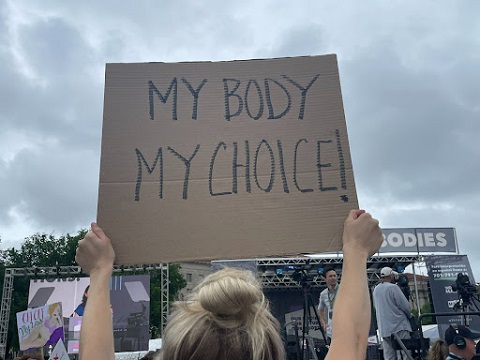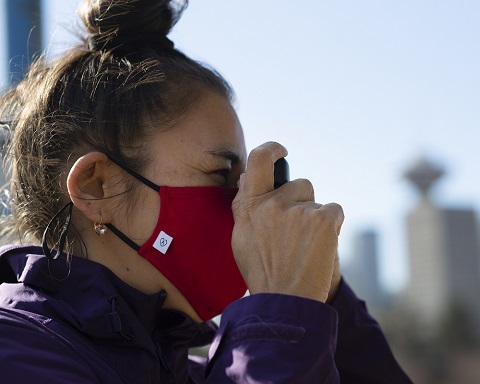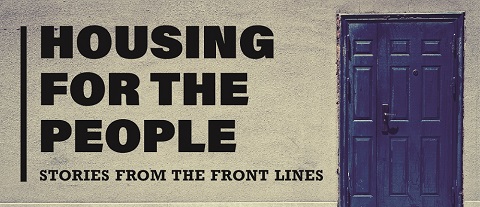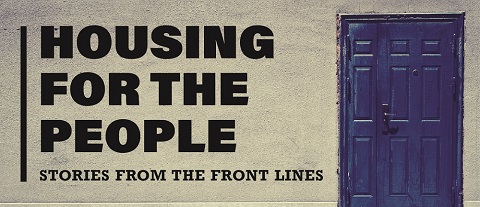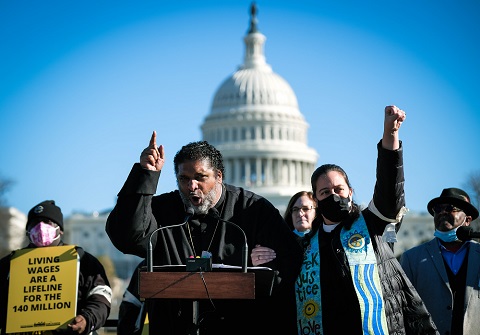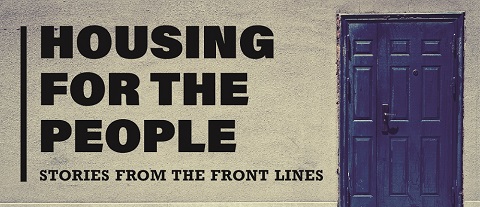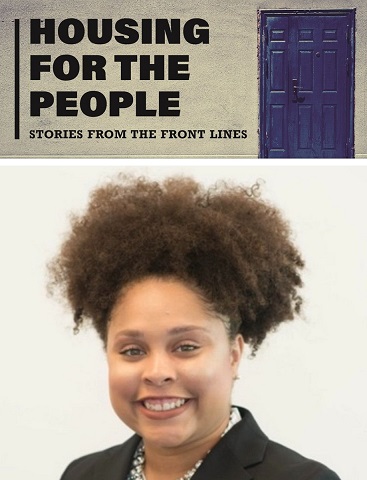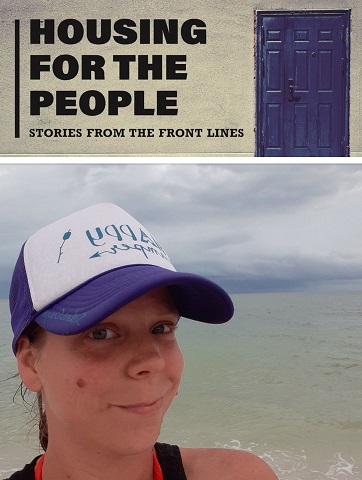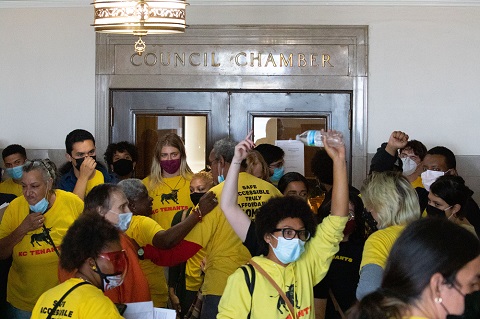By Glenn Harris, Michael McAfee and Dorian Warren
We are facing a new stage in our decades-long housing crisis.
Over the past few weeks, the president has spread racist fears about the destruction of white suburban neighborhoods. The Republican-led Congress has failed to protect families who can’t pay their rent. And a national grassroots movement to cancel rent and mortgage payments is growing. The COVID-19 pandemic has forced people to stay home and left millions without jobs, worried they will be evicted.
As Americans ready themselves for the November presidential vote, housing may be more important than it has been in any recent election.
Those who work to make housing safe and affordable for everyone predicted that local and national housing justice movements would make housing part of the national conversation in a way that it hadn’t been in recent history. The results of housing research led by our three organizations – Community Change, Policy Link and Race Forward – came to the same conclusion. With more than three-quarters of adults saying we need to fix the crisis, America is ready for a national conversation on housing and we dug a little deeper to find out where the public interest lies in addressing the issue.
It is clear that growing majorities of people want to join together to solve housing problems for all of us and are uninterested in racist narratives that defend harmful segregation.
People see a clear role for the federal government
Most affordable housing policies in this country have been enacted or enforced by state and local governments, making access unequal and dependent on your zip code. Our research shows that most adults think the federal government should play a stronger role in making sure everyone has a place to live. Even more agree that we should guarantee affordable housing for all. Growing support for the Homes Guarantee movement proves this point, with more than 70 candidates for federal and local office taking the pledge to help realize a goal of building 12 million housing units, end homelessness, reinvest in public housing and protect renters.
Most Americans believe housing is a basic human need
As our homes turn into temporary offices, schools and daycares, more Americans are realizing how important it is to have a safe place to live. And as unemployment skyrockets to levels previously unseen, they are also seeing how precarious housing security can be. So we were not surprised to find that a strong majority of adults – 72 per cent – consider housing a basic human need, like air to breathe or food to eat. They believe that everyone deserves safety and stability no matter where we come from or where we live.
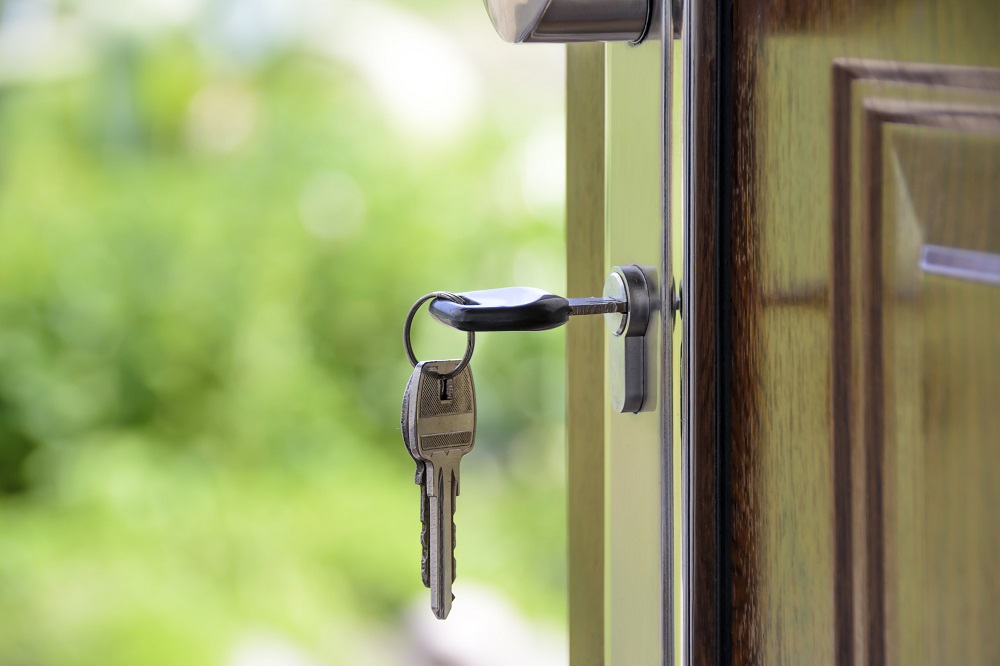
Race matters
Divisive tweets and Facebook posts would have you think that bringing race into the conversation divides Americans — but we found over and over that is just not true. More than eight out of ten people agree that no one should be denied where to live because of their race, family status or a disability. And more than three out of five people say that decades of racist or discriminatory housing policy makes it hard for working people of color to afford a roof over their head. Coupled with the sentiment that everyone deserves a home, regardless of their background, it is clear that growing majorities of people want to join together to solve housing problems for all of us and are uninterested in racist narratives that defend harmful segregation.
72 per cent of adults consider housing a basic human need, like air to breathe or food to eat. They believe that everyone deserves safety and stability no matter where we come from or where we live.
Families link their housing security to their jobs and the economy
Among the top election issues, jobs and the economy consistently rank highest for people regardless of race, age or political affiliation. So, it should not go unnoticed that eight in ten people say that the inability for people to find affordable housing has a large impact on the economy. When you don’t have a stable home, it is difficult to hold down a job or get quality education for your children. Millions of families end up stuck in this cycle. Even as housing costs have risen to make market rate rent unaffordable in every state in this country, wages have stagnated. Unsurprisingly, we found that one of the most favored housing solutions is increasing the minimum wage.
Housing is an election issue and the majority of Americans believe it is a basic right for all of us — regardless of our race, family status or zip code — to have a safe and affordable place to live. Come November, expect people to come together to elect leaders who promise to pass laws that fulfill that right.
Dorian Warren is president of Community Change and vice president of Community Change Action, national social justice organizations that build the power and capacity of low-income people, especially low-income people of color, to change the policies and institutions that impact their lives.
Glenn Harris is president of Race Forward, an organization that builds strategies to advance racial justice in our policies, institutions, and culture.
Michael McAfee is the president of PolicyLink, a national research and action institute advancing racial and economic equity by Lifting Up What Works.
INSP members can download this op-ed from the INSP News Service for republication here.






